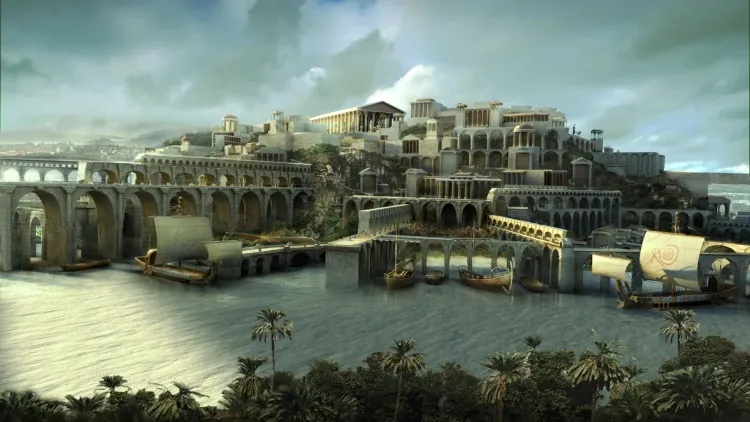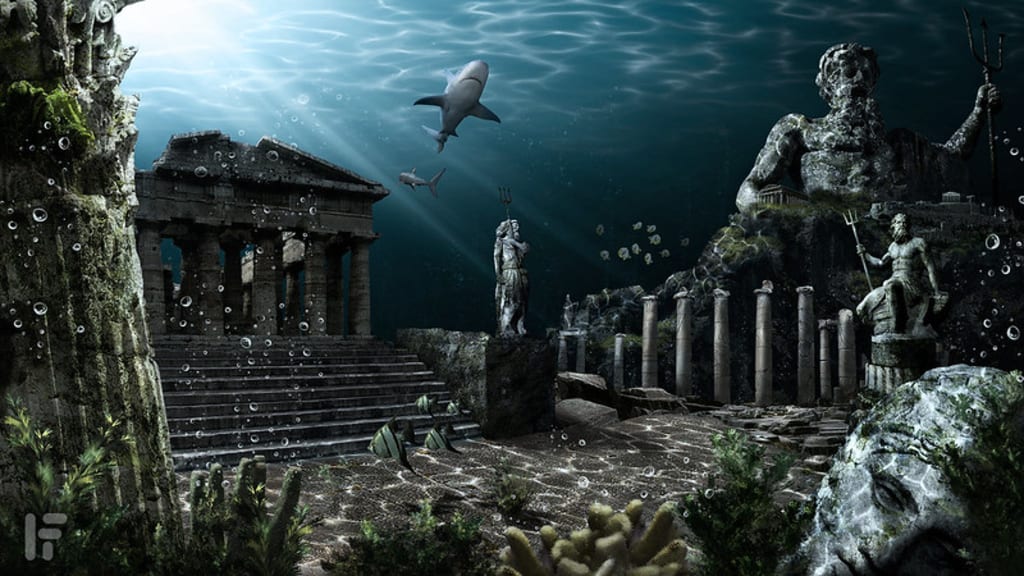The Mystery of Atlantis: Fact or Fiction?....
Whether Atlantis was a real place or a product of Plato's imagination, its legend serves as a timeless reminder of the potential for greatness and the consequences of hubris.

The Myth of Atlantis: A Perennial Fascination
For thousands of years, the legend of Atlantis has intrigued humanity, captivating scholars, writers, and adventurers. First detailed by the ancient Greek philosopher Plato in his dialogues "Timaeus" and "Critias," Atlantis is described as a powerful and advanced civilization that mysteriously sank beneath the sea. Despite ongoing debates and speculation regarding its existence, the tale of Atlantis continues to inspire awe and curiosity.
Origins of the Atlantis Legend
The story of Atlantis originates from Plato's dialogues, composed around 360 BCE. According to Plato, Atlantis was a mighty and prosperous island nation situated beyond the "Pillars of Hercules," commonly believed to refer to the modern-day Strait of Gibraltar. Plato depicts Atlantis as a utopian society with advanced knowledge and technology, flourishing approximately 9,000 years before his time.
The Glory of Atlantis
Plato portrays Atlantis as an idyllic and sophisticated civilization. The Atlanteans were renowned for their exceptional architectural and engineering skills, building grand temples, palaces, and canals. The capital city was constructed in a series of concentric rings, with a central hill and palace at its core. This arrangement facilitated efficient transportation and irrigation, highlighting the Atlanteans' ingenuity.
Atlantis boasted abundant natural resources, including fertile plains and extensive mineral deposits of precious metals like gold and silver. The Atlanteans excelled in agriculture, animal husbandry, and craftsmanship, producing highly sought-after goods and artworks.

The Fall of Atlantis
According to Plato, the downfall of Atlantis was a result of its own hubris and moral decline. As the Atlanteans grew more powerful and prosperous, they became greedy and corrupt, abandoning their virtuous principles. The gods, particularly Poseidon, who was believed to have created and protected the island, grew displeased with their behavior.
In retribution for their arrogance, the gods unleashed catastrophic events, including earthquakes and floods, ultimately causing Atlantis to sink beneath the ocean. The once-great civilization was swallowed by the sea, leaving behind a cautionary tale of pride and downfall.
The Quest for Atlantis
Despite the lack of concrete evidence, the legend of Atlantis has spurred numerous expeditions and theories seeking to uncover its true location. Some researchers believe that Atlantis was real, while others view it as an allegory meant to convey moral and philosophical lessons.
Various locations have been proposed as the possible site of Atlantis, including:
-
Santorini (Thera): Some scholars suggest that the Minoan civilization on Santorini, which was devastated by a volcanic eruption around 1600 BCE, could be the basis for the Atlantis legend.
-
Crete: The Minoan civilization on Crete has also been linked to Atlantis due to its advanced society and sudden decline.
-
The Azores: Located in the Atlantic Ocean, the Azores islands have been proposed as a potential location for Atlantis based on their geographic position and ancient structures.
-
The Caribbean: Some theories place Atlantis in the Caribbean, suggesting that submerged structures might be remnants of the lost city.
Atlantis in Popular Culture
The allure of Atlantis has permeated popular culture, inspiring numerous works of fiction, films, and television shows. From Jules Verne's "Twenty Thousand Leagues Under the Sea" to Disney's "Atlantis: The Lost Empire," the myth of Atlantis continues to captivate audiences worldwide. The idea of a lost civilization with advanced technology and wisdom resonates with our collective imagination, offering a glimpse into what might have been.
Whether Atlantis was a real place or a product of Plato's imagination, its legend serves as a timeless reminder of the potential for greatness and the consequences of hubris. The story of Atlantis urges us to reflect on our society's values and actions, striving for a balance between progress and humility. As long as the legend endures, it will continue to inspire curiosity and wonder, encouraging us to explore the mysteries of the past and our own aspirations.
What's Your Reaction?

















